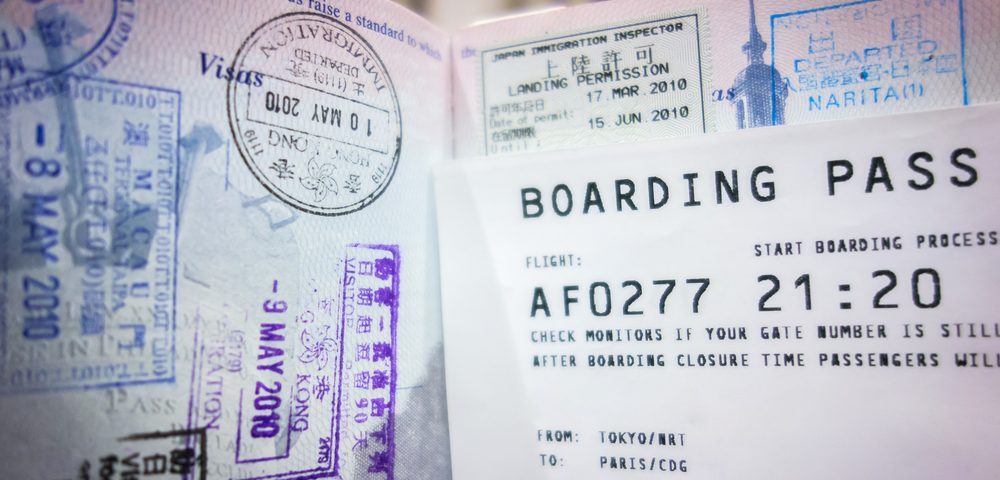Traveling with ‘Al S’

In the Ken Burns documentary, “Baseball,” during the episode titled “Eighth Inning: A Whole New Ballgame,” comedian Billy Crystal mentions in passing the (I assume fictional) name Al Smenglevitz. Years later, I co-opted the character as a coping mechanism — an alter ego. Only, I simply refer to him as “Al S.”
When amyotrophic lateral sclerosis (ALS) too strenuously attempts to impose its will, Al S is available to me for compartmentalization and deflection. Al S is often needy, prone to overreaction, and occasionally bitter. But just like Adrian’s brother Paulie from the “Rocky” movies, he can be an unlikely asset.
Recently, a reader asked, “How do you travel?” The answer is that I travel whimsically and carefree, provided that Al S experiences a modicum of comfort and that he is not an overly obtrusive burden to my other companions. The accomplishment of that entails varying degrees of planning and fortune.
These days, unless absolutely necessary — seeking shelter from Hurricane Irma, for example — my travel is never of the overnight variety. Spontaneity always takes a back seat. Anticipated day excursions that don’t require my cache of transfer devices are the sojourn of choice. All that is necessary are a fully charged power wheelchair, an appropriately stocked backpack, and a willing pilot for my handicap van. The minimal contents of the backpack are:
- urinal
- plastic cup with thumb indent
- wide-handled, bendable, eating utensils
- paper towels
- spare shirt
- latex gloves
- sunglasses
- sunscreen
- lanyard ID to include that I suffer from ALS
I’m not saying that an extended trip is impossible. For the right destination and occasion, Al S and I would make it happen, as could many of you. If an airline is involved and you don’t mind being escorted to your seat secured like Hannibal Lecter, it’s straightforward enough. If a rail suits you better for long-haul journeys, Amtrak has a comfortable, disability-accessible sleeper car.
Any sizable population center will have outlets offering the requisite assistive devices for rent. A sampling of various metropolitan areas yielded available rentals matching my current needs (transfer lift, shower wheelchair, and portable ramp) at a not unreasonable outlay. Alternatively, the local ALS Association or Muscular Dystrophy Association loaner closet may have something suitable in stock.
For getting around, there are a number of options. Wheelchair van rentals are plentiful. Many transit authorities will have a fully accessible, fixed-route bus fleet. These provide economical service to hospitals, shopping centers, and many attractions. Some municipalities may offer paratransit service, in which a passenger can reserve a ride in advance. Paratransit vehicles make pre-arranged trips for riders whose pickup or drop-off points don’t coincide with those of the fixed route. Documentation affirming that you are legally entitled to this service may be required. It’s best to inquire in advance.
Of course, the Americans with Disabilities Act sets minimum standards for accessibility. Most facilities (such as hotels, restaurants, retail merchants, doctor’s offices, golf courses, private schools, cultural centers, museums, sports stadiums, movie theaters, etc.) built or modified after 1990 must accommodate the disabled. Thus, once situated in a city, maneuverability challenges minimize.
The above is only certifiably characteristic of travel within the United States. Foreign countries are a mixed bag. However, I can personally vouch for the suitability of the accessible hotel rooms in France. Moreover, if not for Al S, I would not have toured the palace at Versailles, several D-Day museums, and the Château de Chambord, free of charge. France charges no admission fee to national museums for people in wheelchairs.
I also would not have been treated like royalty in two French towns. In Ceyreste, I was carried in my wheelchair up and down the steps of a 14th-century Catholic church by a group of sympathetic onlookers. In La Ciotat, I had the pleasure of availing myself of a complimentary floatable wheelchair. Fashioned in the manner of a rolling chaise lounge and composed of buoyant components, it enabled me to luxuriate in the Mediterranean Sea as much as 100 meters from shore. The service included safely placing and removing me from the chair, plus transportation to and from the beach. Fit for a king, indeed.
Regardless of destination, websites like WheelchairTravel.org provide invaluable guidance.
The reality is that, just like an American Express card, I can’t leave home without Al S. His presence frames all that I experience, mostly in a harshly hostile way. However, Al S also has the knack for drawing out the better angels of a stranger’s nature. Whenever I venture out, I invariably encounter folks whose empathy, indulgence, service orientation, generosity, kindness, and love for fellow humans move me deeply. These are priceless treasures of the highest order. If Al S was not my travel sidekick, I would not recognize, embrace, or experience these moments for what they are: gifts from God.
***
Note: ALS News Today is strictly a news and information website about the disease. It does not provide medical advice, diagnosis, or treatment. This content is not intended to be a substitute for professional medical advice, diagnosis, or treatment. Always seek the advice of your physician or other qualified health provider with any questions you may have regarding a medical condition. Never disregard professional medical advice or delay in seeking it because of something you have read on this website. The opinions expressed in this column are not those of ALS News Today or its parent company, Bionews Services, and are intended to spark discussion about issues pertaining to ALS.







Ryan N
I had previously commented on the darker tone of some of the newsletters pointing out some of the inevitable situations we will face and asked you avoid those kind of messages. With that said I felt compelled to say what a wonderful upbeat and positive message this was. It didn't list all the negatives of travelling with ALS but gave good information about how to prepare and encouragement to do it. Thank you for the message and as always the important medical information.
Clements Price
My Wife was diagnosed with ALS (Lou Gehrig's Disease) when she was 72 years old 4 years ago. The Rilutek (riluzole) did very little to help her. The medical team did even less. Her decline was rapid and devastating. Her arms weakened first, then her hands and legs. Last year, a family friend told us about Organic Herbal clinic and their successful ALS TREATMENT, we visited their website www. organicherbalclinic. com and ordered their ALS Formula, i am happy to report the treatment effectively treated and reversed her Amyotrophic Lateral Sclerosis (ALS), most of the symptoms stopped, she is able to walk and eat well, sleep well and exercise regularly., she is pretty active now and her attitude is extremely positive.